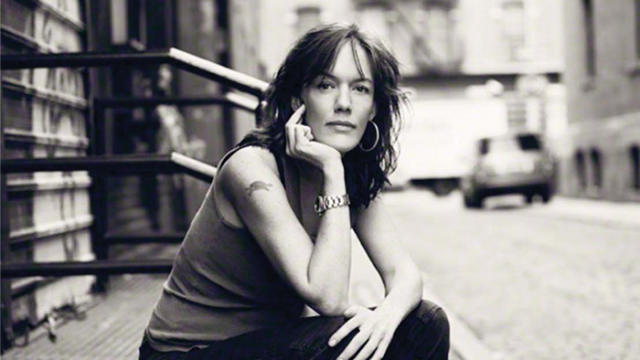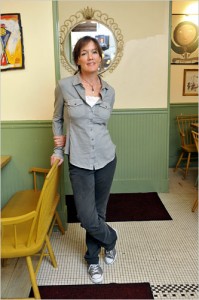‘The challenge of modernity is to live with illusions and without becoming disillusioned.’
-Antonio Gramsci, from the opening of Zoë Heller’s The Believers.
Faith and belief have always been curious subjects for me. I grew up in an agnostic household, and with the exception of a few family members, I’ve never had any serious connection to religion. To be frank, while I applaud people who use faith as a means to give gravity and perspective to their lives, I personally lean more towards a supercilious dismissal of such activity. My philosophy has always been more Absurdist: ‘the road to knowledge will ultimately fail, hence be absurd, the journey itself can carry insight.’ However, isn’t it contradictory and even hypocritical to say I have this philosophy while dismissing other people’s belief systems? It is, and it is just one of many reasons Zoë Heller’s third novel, The Believers, is such a challenging but rewarding read. At the heart of the novel is the question of faith: why do we believe the things we do? The book has few answers, and yet it is one of the rare books that challenged my own perceptions of what I believe and how I see the world. The fact it’s devastatingly funny is just the icing on the cake.
The Believers concerns the Litvinoff clan, an upperclass, staunchly left-wing, atheist Jewish family in NYC, consisting of radical lawyer Joel, his English wife Audrey, and three kids, Rosa, Karla, and Lenny. The strained relationships of the Litvinoffs are put under greater stress following a shattering act which forces each family member to evaluate their beliefs and their own lot in life. In an interview with The New York Times, Heller said her inspiration for the novel came from a report where a group of scientists claimed to find a genetic answer for people’s beliefs. It’s rich material to explore, and Heller applies it within the confines of a family saga. Early in the novel, Jean, a close family friend of the Litvinoffs, observes the dogmatic ties in the family: ‘There were some people with a gift for conviction–a talent for cutting a line through the jumbled phenomena of world affairs and saying, “I’m in: this is my position.” Audrey had it. All the Litvinoffs had it, to some extent. It was a genetic thing, perhaps.’
Based on the bare bones plot summary, prospective readers can be forgiven for thinking the novel is a shrill family soap opera. In lesser hands, there would have been. There is melodrama, but it’s expertly balanced with scathing social observation and deeply inquisitive psychological insight into its characters; Heller is interested in more than the soapy exploits of a wealthy New York family. She takes a collection of tropes: the bitingly sardonic mother, the straight-and-narrow daughter, the daughter struggling with weight issues, the addict son, and the political hell-raiser father, and with scalpel precision, skewers every preconceived notion the reader may carry of them. Instead of creating clear cut heroes and villains, or taking ‘deeply flawed individuals’ and gradually teasing out their inner goodness, she lays bare all the characters’ messy faults. In the aforementioned NY Times interview, Heller remarked, ‘The point of fiction is not to offer up moral avatars but to engage with people whose politics or points of view are unpleasant or contradictory.’ This is perhaps not a terribly surprising answer, given that Heller is best known for writing the novel What Was She Thinking? Notes on a Scandal, a chilling character study of a sociopathic individual, which was adapted into the Oscar-nominated film of the same name. The Believers is not as actively dark as Notes on a Scandal, but Heller eschews sentimentality and easy answers at every opportunity, choosing to offer a stark portrait of faith in the lives of broken people.
The whole novel could easily tip into being a miserable wallow in the lives of pettish, unhappy individuals, but Heller’s acerbic wit gives the story a much needed buoyancy while simultaneously highlighting the tragedies beneath the surface. The Believers is one of the funniest novels I’ve read, certainly the funniest since Maria Semple’s Where’d You Go, Bernadette? The Believers shares many similar traits with Bernadette, the most obvious being they are both sharp social comedies about dysfunctional families, but their best shared quality is how the funny bits never feel like set pieces to punctuate a dour family drama; the humor is part of the very fabric of the story. There are undoubtedly moments in The Believers where the viewer is alerted that hilarious disaster is around the corner (a family dinner on Audrey’s birthday being an obvious example), but the novel’s humor is often at its sharpest in the quiet moments. After Audrey receives calamitous news early in the novel, she insists upon finishing her cup of tea before addressing the situation. Later, when she is calling her children to left them know what happened, she leaves a deliberately nonchalant message, saying something came up and ‘give us a ring when you can.’ A moment like that works so well because it’s a great bit of comedy, but it also portrays Audrey as a woman who is so in control of her surroundings, she’s peeved more than anything when an event disrupts that balance.
If the prose of The Believers earns Heller well-deserved comparisons to writers like Evelyn Waugh, the novel’s psychological insight and curiosity follows in the footsteps of Henry James and Edith Wharton. Heller is British, although she’s an expat who lives in New York. While I hesitate to say there is a quintessential ‘Britishness’ in her novel, she is acutely aware of social hierarchy and conduct in a manner I have rarely seen in contemporary American fiction. She expertly dissects these divides, highlighting the contradictions and absurdity that are frequently linked to upperclass ‘radicalism.’ In one scene, after Audrey is confronted with an unfamiliar woman who is almost certainly the bearer of bad news, she demands Jean call the police, only to later reflect how she and her husband often prided themselves as being on the same level of more disenfranchised individuals, and they avoided calling the police unless it was a life-or-death situation. Beyond the class observations, Heller has an uncanny ability to illustrate her characters and their weaknesses in a compassionate light, while simultaneously tearing them apart. She cares about them, in that she cares about why they are the way they are, but she never hesitates to poke fun at their contradictory, often ridiculous behaviors.
Beneath the novel’s enchanting wit, there is a quiet but strong undercurrent of tragedy; it grounds the humor while capturing how those painful moments can be funny in their own abstruse manner. One of the clearest examples is in Karla, the often ignored middle daughter of the Litvinoffs, who suffers from yo-yoing weight issues and an unhappy marriage. Heller finds the balancing act between commiserating and finding humor in her melancholy. In one scene, Karla, a hospital social worker, is attacked by a strung-out junkie, and in her thoughts, she thinks the worst thing about dying now would be that the paramedics would find her wearing an XL skirt. In lesser hands, it would have been a mean-spirited bit of having one’s cake and eating it too. Thankfully, Heller captures how one part of Karla’s character (her weight) is intrinsically tied to how others perceive her, that it makes sense for her character to drolly remark upon her figure, even in situations where it is of little immediate importance.
The most challenging, yet rewarding aspect of The Believers is how clearly it explores Rosa, the eldest daughter, and her burgeoning relationship with Orthodox Judaism. She is presented as a former revolutionary type, who after an extended stay in Cuba, becomes so disillusioned, and much to her own surprise, and her parents’ fury, finds herself drawn toward a conservative religious group. Reading Rosa’s own complicated feelings toward Orthodox Judaism, what she finds both comforting and infuriating, echoes Flannery O’Connor’s quote, ‘Faith is what someone knows to be true, whether they believe it or not.’ What is the ‘truth?’ Heller offers no concrete answer, and instead of adopting an overly anthropological examination of Rosa’s relationship with faith, she concedes there are some aspects of humanity that will forever have no definitive answer, and as such, it is ultimately in the eye of the beholder. Earlier I mentioned I have my own complicated feelings toward with and religion, and reading the novel, Heller puts me in Rosa’s shoes; as a non-religious person, it’s simultaneously fascinating and deeply unnerving, simply because it goes against my beliefs. There are many a novel or short story about faith, but few have quite the same unflinching perceptiveness in how the characters juggle their faith, while asking the reader, ‘why do you believe what you believe?’
The greatest strength of The Believers is how it succeeds as both a page-gripping comedy of manners and a deeply curious examination of dogma. The novel avoids reassuring answers; in one part, a character flatly states just how tied she is to her own beliefs, and how nothing could change their mind. Heller is not a sentimentalist, but her compassion and inquisitive nature give the novel an odd humanistic edge. Much like E.M. Forester, who famously told a century, ‘Only connect,’ Heller asks, ‘who are you and why?’ all delivered in a delightfully acerbic fashion; it’s humor and tragedy are so intertwined, they are like a Möbius strip.



